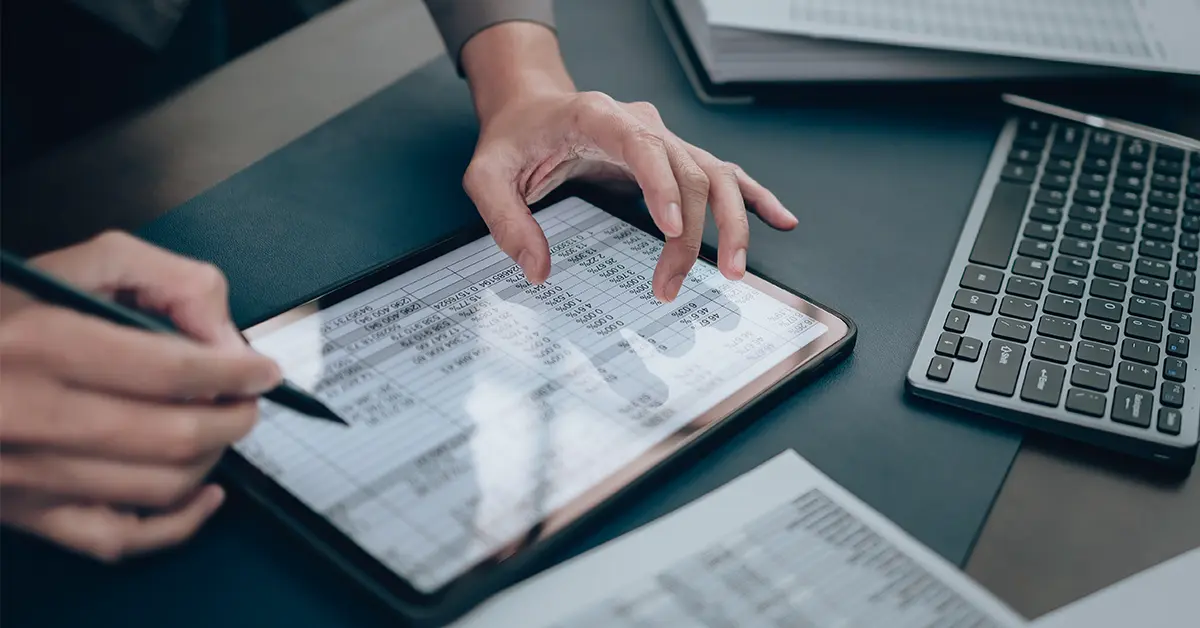If you're a working professional, you're already well aware that developing professional skills isn't something you perfect overnight; it takes time, practice, and a general level of comfort when it comes to interacting, working, and interviewing with other professionals especially those who have been in the business for a while and know the ins and outs of the industry.
And while many people are focused on professional skills in terms of personality characteristics such as communication, leadership, or team-building, we'd like to take some time to focus on the maybe lesser mentioned areas of professional etiquette; more specifically, how to handle yourself tastefully when it comes to preparing for an interview or meeting with a working professional to learn more about a potential opportunity.
So whether you're a college student who hasn't had that much exposure with working professionals or you'd like to brush up on your current knowledge, we thought wed start a short series focused on professional development. Every week, we'll talk about a different topic, including its importance to the working world and how you can master it. To kick off our series, lets start with the basics: how to get a coffee date.
And were not talking the romantic kind. Although, if you have a few pointers to put people in the right direction, feel free to comment below! In any case, heres what we mean by getting a coffee date and why its so important.
What is a coffee date?
A coffee date is an informational interview. Whats an information interview? Its exactly what it sounds like! A hidden tool you can use to further research the organization youre interested in and how you could potentially fit in well with that culture. Getting an informational interview with someone from that company could be just the thing that sets you apart from the rest of the candidates that organization is thinking about.
How do I do it?
First, youll want to do some thorough research on the organization. What do they do? How do they do it? What position are they looking to get filled? Next, try to grab a list of the people working at that organization and see who in what department and with what title can most likely be able to meet with you and tell you a little bit more about themselves, the company, and the position youre interested in.
This means making sure that you contact the right people. You obviously dont want to reach out to the receptionist if youre looking for an auditing position in a firm. Look for someone whos probably had the role youre applying for or, even better, has the role youd like to have five years from now. They will be the ones who will give you a better understanding of what they went through to get to where they are and will probably be able to give you more insightful and valuable information since it pertains to your situation. If you have a LinkedIn account, look up those potential people and see if you know anyone who knows them (a first or second connection is a great start). Ask your contact to connect the both of you; after he/she has done so and gets the okay, send an email that expresses your interest to meet and why. If you dont have any connections through LinkedIn or otherwise, send an email similar to the one below but with some rewording that really focuses on your desire to learn more from them. Heres a good example:
Dear __________,
Thank you for taking the time to speak with me. Im _________, a friend of _________, who sent you an email yesterday to introduce us. As a (insert background information here), Im looking to (insert goals here). I really admire (insert company name) and how it is (insert interesting or noteworthy things the company is doing that pertains to your desire to be in the industry, etc.). If you have some time, Id like to meet you for coffee to learn more about your role and the company itself. I am available (insert availability). Please let me know if any of those days and times work for you.
Best,
___________
The more polite and considerate you are in your email, the better. Give the person a couple days to respond. If they dont, send a gently nudging follow-up email that reminds them of your desire to meet and what their availability is:
Dear __________,
Hope your day is going well. Im just writing to follow-up with you regarding my request to meet with you to learn more about (x, y, and z). Please let me know if you are available anytime this week or next.
Best,
___________
If they dont respond after a couple days, its time to move on. Try to find someone else in the company you can talk to with a similar background/credentials or look to a different organization. But chances are, theyll get back to you.
They said yes. Now what?
Wahoo! Once the two of you have agreed on a time and place, prepare yourself to ace the informational interview by doing the following:
Research. This means doing any additional research about the company and the person that can help you better carry a conversation with him/her. Have a strong grasp of the companys history, the current projects, what it hopes to achieve, etc. Additionally, see what information you can find about your informational interviewer on LinkedIn, such as his/her interests, the school they went to, etc. Remember, informational interviews are kind of like regular interviews except better because theyre more casual. Not wear-your-sweat-suit casual, but definitely less formal and more down to earth.
Prepare questions. Make a list of questions that pertain to what you want to learn more about both in regards to the company and the interviewer's background. This is a chance for you to really gain a better understanding of how the company works and whether or not you can imagine yourself being there on a daily basis. Here are some good starting points:
- a. What is the company culture like?
- b. How did you progress in your career to get to where you are today?
- c. Whats your favorite thing about working here?
- d. Can you describe a typical work day?
- e. What parts of the job do you find most challenging/fun/rewarding?
- f. Who else would you recommend I speak with?
- g. Where do you see yourself in 5 years?
- h. Whats the advancement potential like in the company?
- i. Considering my background, how well do you think I would fit in with this company?
Prepare answers. Similar to regular interviews, the informational interview is also a chance for your interviewer to get to know you and how you would fit into the company culture. So prepare to be asked questions that you might be asked by a hiring manager and prepare your answers thoughtfully and articulately. You dont want to be caught off guard when they begin wanting to know more about your short/long term goals and background. Make sure you yourself understand why youre interested in pursuing this career path, how your past experience makes you qualified to pursue this path, and what youd like to do with it two or three years from now. This will show that you have given it careful thought and are confident about your capabilities to succeed in this career now and in the future.
Dress appropriately. You want to make a good impression, and even though this is not a formal, regular job interview, dont take it as a sign to dress casual or business casual. Come in a full suit. This shows the amount of initiative and thought in the way youre approaching not just your interviewer, but your interest and seriousness in this career path.
Bring your resume. The interviewer understands that you are interested in a position or opening at his/her company and that is the reason for the meeting. In the event that theyd like to recommend or refer you to their hiring manager, it will be imperative to have your resume handy. Or, if theyd like to see your background and experience on paper, you will have it readily available. A general rule of thumb to keep in mind is to only present it if they ask for it or to offer it to them as a wrap-up at the end of the interview to be kept on file for future consideration. Waving your resume around without them asking for it can seem like youre only meeting them to talk about your wants and needs, rather than learning more about the opportunity and the company.
Phew. The informational interview is over. What happens next?
Send a follow-up thank you email! The general recommendation is to send a follow-up within 24-48 hours after the informational interview, but we recommend doing it somewhere within the 24 hour window. Simply thank them for their time and always remember to input some key words and phrases to show that you were actively listening and interested in the conversation. And, if they asked you to apply for a job, send in a resume, or anything else, this is the perfect place to do so:
Dear ________,
Thank you for meeting with me today. I really enjoyed our conversation, particularly about (x, y, and z). Im glad I was able to learn more about the company and (x, y, and z). Please feel free to contact me any time if theres any additional information I can provide you with (or, provide additional information requested of you here).
Take care,
___________
Am I done now?
Nope! Many people make the mistake of having an informational interview and
leaving it at just that. They dont contact the person ever again or actually just wait to be offered a job by them.
But that shouldnt be the case! Youve probably spent more time talking to the interviewer than you have in the last
ten years with some of your facebook friends from high school, so dont lose this opportunity to add him/her to your
network and keep in touch.
Send them a message on LinkedIn to connect or send some occasional articles or interesting news stories that pertain to your conversation that he/she may find intriguing or worth a read. This shows them that youre not about just tossing them to the side once youve gotten what you need. Show genuine interest in being a part of their network and, maybe some time down the road, youll be the first one they consider when an opportunity presents itself.




